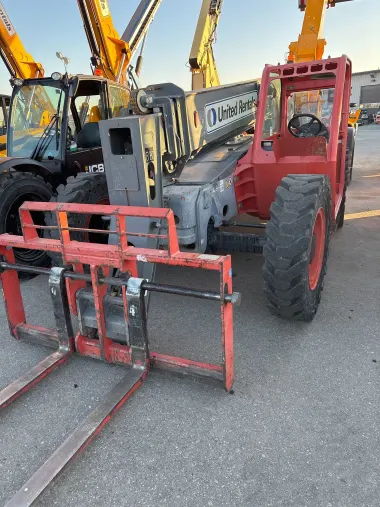Resumen
You are probably no stranger to the boom lift if you are in construction. Commonly used to lift both workers and materials into high elevations, boom lifts are essential in many industrial construction projects.
The telehandler, a particular type of boom lift, does the job of a standard boom lift and much more. With various moving joints and parts, telehandlers can move up and down and horizontally.
Telehandlers come in two types: standard and rotating. Standard telehandlers are more similar to the original boom lift, with a lower range of motion typically used for agriculture and smaller construction projects. On the other hand, Rotating telehandlers can rotate up to a full 360º allowing for a broader range of motion.
Telehandlers are also compatible with various attachments, such as work platforms, forks, and buckets.
